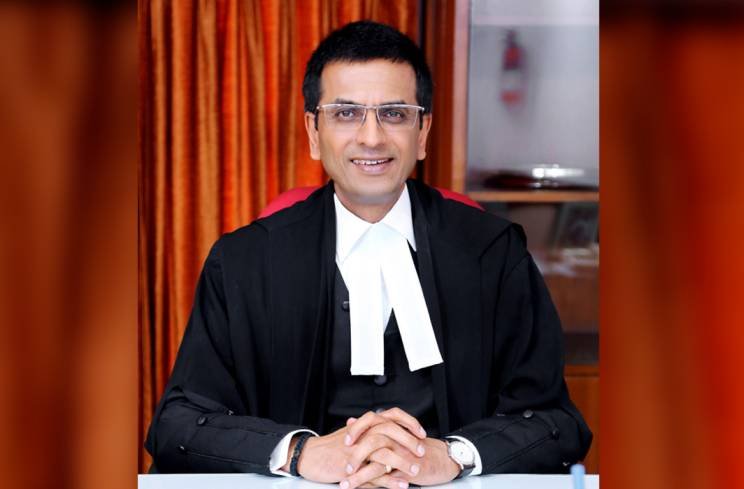Chairman of the e-committee of the Supreme Court, Justice DY Chandrachud said Virtual court hearings are not a substitute for the open Court system, but it is something that the Courts had to resort to on account of the unprecedented COVID-19 pandemic, said
During a webinar conducted on Sunday by NALSAR’s Nyaya Forum, Justice DY chandarchud also emphasised that it was important that technology is used for “inclusive justice”, and that it “does not become a means of exclusion.”
Justice DY Chandrachud said that the Open Court system is the “spine” of our legal system and that it cannot be displaced by the virtual court system.
Justice DY chandrachud added that the pandemic and the subsequent lockdown brought many changes to the way Courts function, starting with limiting the number of lawyers in Courtrooms and frequent sanitization, to moving to video conferencing for conducting hearings of urgent matters.
“…virtual court hearings are not some sort of a panacea or a substitute to open court hearings… We had no choice in the pandemic but to resort to it.”
Also Read: Justice DY Chandrachud e-inaugurates two virtual courts for ‘Traffic challans Captured via Cameras’
Justice DY chandrachud added that while we may wish to return to the open court system, the aim should also be to develop the technology to some extent to empower the Courts to be fully functional virtually as well.
“We want to increase functionality and may even return to open court, but we do not want to throw out the baby with the bathwater… The long-term goal of the e-courts project is to ensure that all courts in India are capable, where and when necessary.”
Justice DY chandrachud also indicated that technology is being developed for making the e-filing modules disabled-friendly to ensure that lawyers from all backgrounds use the system effectively.
“Technology should be used for inclusive justice”, Justice Chandrachud said, pointing out that the data suggests that a large section of the people still do not have access to technology and the internet. Therefore, it is important to ensure that this “technological divide does not become a means of exclusion.”
Justice DY Chandrachud also listed the important projects undertaken by the e-committee, which include SOPs for digitisation of records, for e-filing, developing modalities and guidelines for live streaming, among others.
Justice DY Chandrachud acknowledged that even he was not accustomed to digital files until recently, but that with assistance, his digital awareness has improved.
“Most importantly, once I saw the benefits, I was willing to learn” Justice DY chandrachud said.

